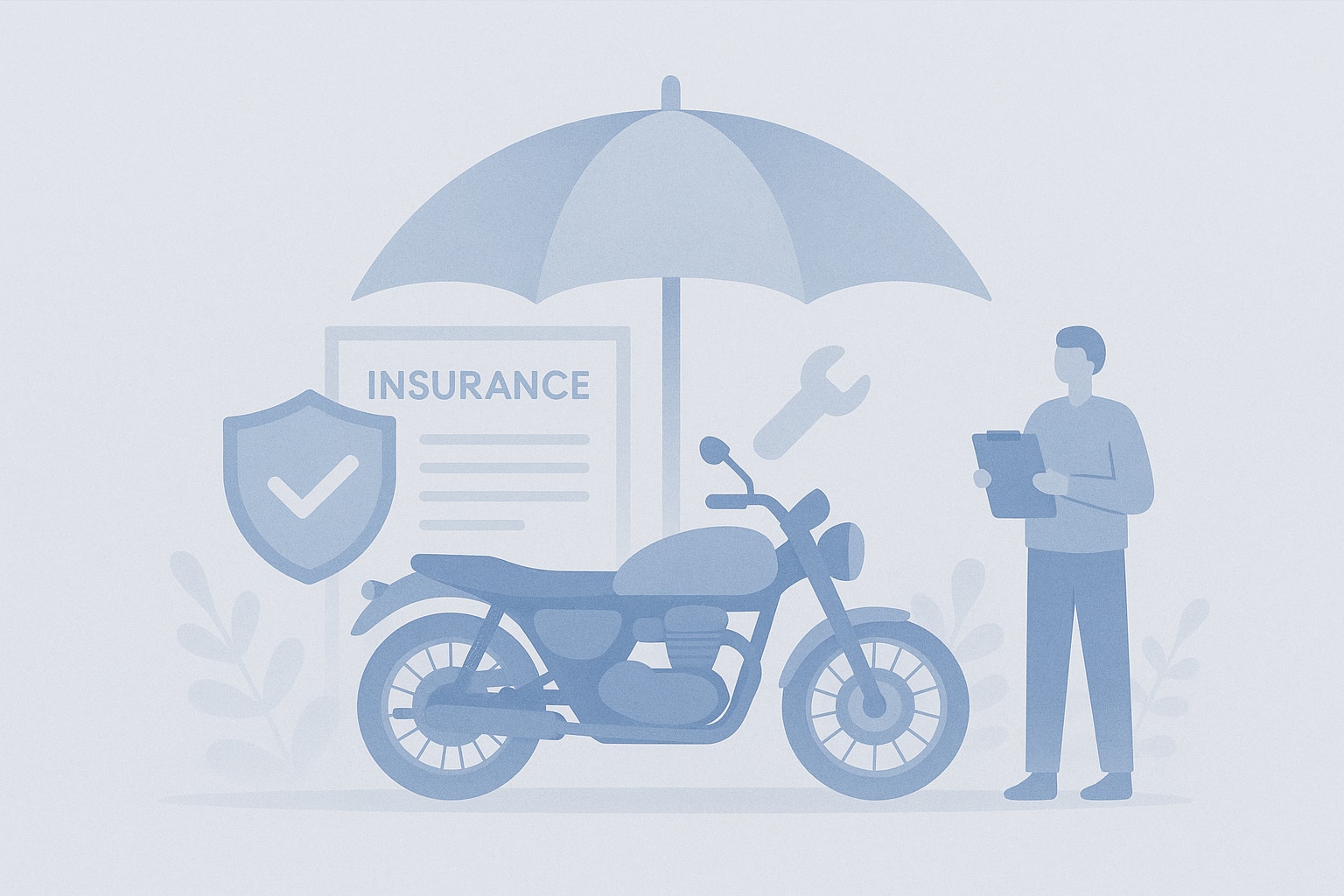Single vs Multi-Year Bike Insurance Plan

A bike insurance plays an important role in keeping your bike protected from unwanted circumstances. Both of them have unique advantages, and you should know the difference between them before you make a choice. Read this article to get a detailed comparison between single and multi-year bike insurance.
Why Do You Need Bike Insurance?
As per the Indian Motor Laws, having a bike insurance is a legal mandate. Bike insurance gives financial protection against any loss or damages to your bike due to accidents, theft, and even natural disasters. In India, it is mandatory to have at least a third-party two wheeler insurance, as it financially protects against any injury to any third party, property, or loss of life.
Besides, riding a bike without insurance may lead to a fine or challan of ₹2,000/- or imprisonment for up to 3 months, or even both. Therefore, a bike insurance effectively protects the bike owner from the financial burden of any mishap, theft, or natural and man-made disaster.
What is Single-year Bike Insurance?
As the name suggests, a single-year two-wheeler insurance policy is valid for a year only. If you have a single year bike insurance, you must renew it every year. It is quite a hassle as you need to keep an update on the expiry date. However, it gives you an option to change your insurer after a year if you do not like the services provided by your insurer.
What is Multi-year Bike Insurance?
A multi year or long term two wheeler insurance insures your vehicle for three to five years. IRDAI has also made it mandatory to have a 5+1-year bike insurance cover for every new two-wheeler in India. Under this mandatory 5+1 year policy, 5 years is TP (third-party bike insurance plan) and 1 year is OD (own-damage bike insurance plan). A multi-year policy also saves you from any price fluctuation that may happen during the course of your policy. If you are using a single-year policy, it also gives you an option to upgrade your single-year insurance policy to a multi-year two-wheeler insurance policy at the time of existing policy renewal.
Single Year vs Multi Year Bike Insurance
The table below highlights the difference between a single year and multi year bike insurance in a detailed manner.
| Parameter | Single-Year Bike Insurance | Multi-Year Bike Insurance |
| Definition | A single-year bike insurance offers coverage for one year and needs to be renewed annually. | A multi-year bike insurance is a long-term insurance plan that removes the hassle of policy renewal every year and keeps you protected from the risk associated with the renewal of policy for 3 to 5 years. |
| Policy Renewal | Single-year policies have to be renewed every year by the bike owner. | You'll have to renew the policy just once in three or five years, depending on the type of plan you have purchased. |
| Flexibility | In a single-year policy, you can modify insurance policy every year and take advantage of any offers and discounts. | Multi-year policies are comparatively less flexible than single-year policies. |
| Pricing | In a single-year policy, the insurer might hike the premium amount on a yearly basis. Hence, it may be costlier than a multi-year bike insurance plan. | A multi-year bike insurance policy is cost-effective as the premium amount is fixed at the beginning of your policy and it remains the same for 3 or 5 years. |
| Add-ons | You can include or remove add-on covers every year as per your requirement. | The flexibility to buy add-ons in multi-year bike insurance plan is restricted as you can only choose them when you buy the policy and not edit them annually. |
| Discount on Own-damage | In single-year bike insurance, you cannot avail Own-damage (OD) discount by your insurer. | Insurers offer discounts on Own-damage (OD) helping you to reduce the cost borne at the time of issuing the policy in Multi-year bike insurance. |
| No Claim Bonus Discount | For single-year bike insurance, you get the benefit of an NCB discount that is less than the multi-year plan. | Multi-year insurance policy is offered with a higher rate of NCB discount compared to a single-year insurance policy. |
Which One to Choose from Single-year or Multi-year Bike Insurance?
As per the IRDAI, it is mandatory to buy a long term or multi-year bike insurance for brand new two-wheelers. Keeping in mind all the advantages and disadvantages of both the plans, a multi-year bike insurance is cost-effective and hassle-free as it saves you from annual renewal and annual price hikes, while a single-year insurance policy offers more flexibility when you renew the policy every year. However, it is maybe costlier than the multi-year plan.
Therefore, if you are looking for a convenient and cost-effective option, then multi-year bike insurance is a perfect choice for you. Otherwise, if you are looking for flexibility and limited protection, then a single-year bike insurance policy is made for you.
Things to Keep in Mind Before Buying Bike Insurance
Here are the few points you must consider before buying any type of insurance policy for the bike.
- Calculate Premium Online: You can calculate your bike insurance premium with the help of an online bike insurance calculator available on Policybazaar.com for free before buying the policy. Choose a plan based on things like the age of the bike, location where you reside, engine's cubic capacity, etc.
- Know Your Need and Budget: Usually, comprehensive bike insurance plans are customizable. But in the case of third-party insurance for your bike, you are restricted from the customization in the budget. Hence, choose a plan according to your need and budget.
- Buy Bike Insurance Online: It is advised to buy two-wheeler insurance online instead of offline. Moreover, you should compare the same type of plans online. This is how you get to know the coverage under a plan and services available at a particular cost. Also, you get low-priced plans and added benefits when you buy online bike insurance.
- Know About Your Insurer: It is very important to know about your insurer for a faster claim process and hassle-free services. You must verify the authenticity of your insurer by checking their customer reviews and feedback on Google and social media sites. Choose a bike insurance company that delivers excellent customer service, a seamless claim process, and affordable premiums.
FAQs
-
Q.1 What are the 3 types of bike insurance?
Ans:Insurers offer 3 types of bike insurance policy. These are third party (TP) bike insurance, own damage bike insurance, and comprehensive bike insurance. While a TP insurance only offers protection against third party liabilities, own damage and comprehensive insurance covers damages caused to the insured bike. -
Q.2 Which type of 2 wheeler insurance is best?
Ans: It is usually advised to opt for a comprehensive bike insurance policy as it offers an extended protection not only against third party liabilities but also offers protection and coverage against damages or losses caused to your own bike. -
Q.3 Is multi-year bike insurance worth it?
Ans: Yes, usually a multi year bike insurance is a better choice as it insures your bike for a long term. With a multi year long term bike insurance, you do not have to renew your bike insurance every year and are less likely to attract a fine in case you forget to renew your insurance. Both the insurance policies offer protection and accident cover. So you can choose a plan according to your needs and budget.


